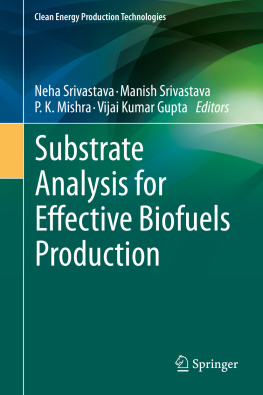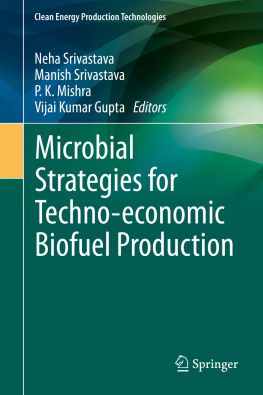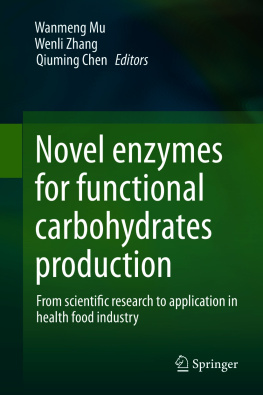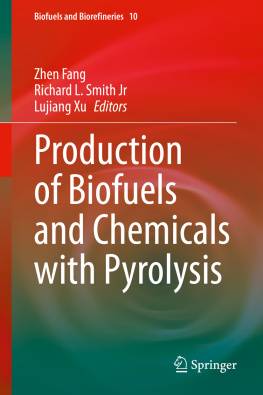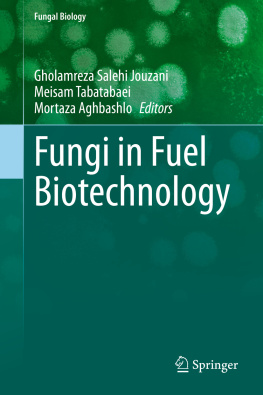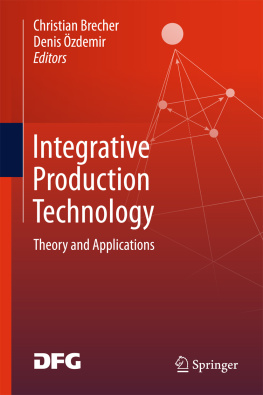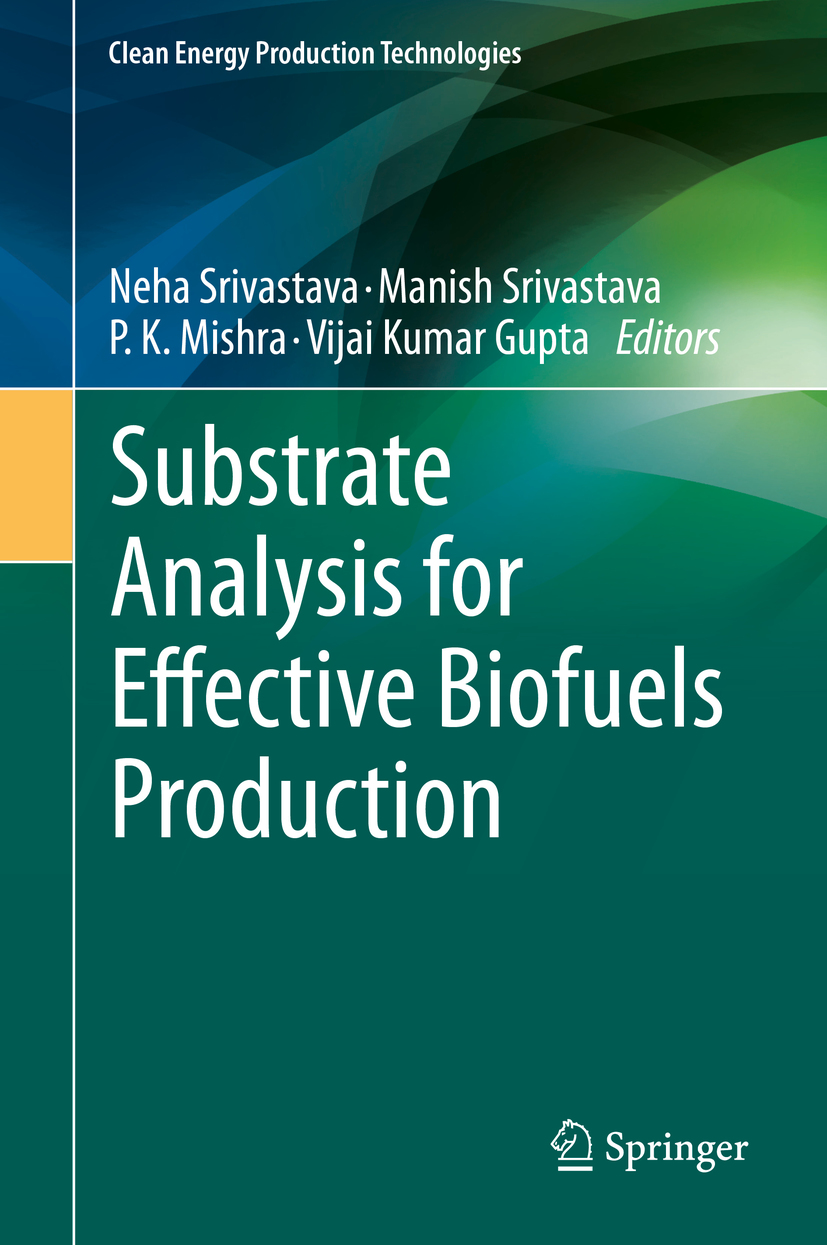Clean Energy Production Technologies
Series Editors
Neha Srivastava
Department of Chemical Engineering and Technology, IIT (BHU) Varanasi, Varanasi, Uttar Pradesh, India
P. K. Mishra
Department of Chemical Engineering and Technology, IIT (BHU) Varanasi, Varanasi, Uttar Pradesh, India
The consumption of fossil fuels has been continuously increasing around the globe and simultaneously becoming the primary cause of global warming as well as environmental pollution. Due to limited life span of fossil fuels and limited alternate energy options, energy crises is important concern faced by the world. Amidst these complex environmental and economic scenarios, renewable energy alternates such as biodiesel, hydrogen, wind, solar and bioenergy sources, which can produce energy with zero carbon residue are emerging as excellent clean energy source. For maximizing the efficiency and productivity of clean fuels via green & renewable methods, its crucial to understand the configuration, sustainability and techno-economic feasibility of these promising energy alternates. The book series presents a comprehensive coverage combining the domains of exploring clean sources of energy and ensuring its production in an economical as well as ecologically feasible fashion. Series involves renowned experts and academicians as volume-editors and authors, from all the regions of the world. Series brings forth latest research, approaches and perspectives on clean energy production from both developed and developing parts of world under one umbrella. It is curated and developed by authoritative institutions and experts to serves global readership on this theme.
More information about this series at http://www.springer.com/series/16486
Editors
Neha Srivastava , Manish Srivastava , P. K. Mishra and Vijai Kumar Gupta
Substrate Analysis for Effective Biofuels Production
Editors
Neha Srivastava
Department of Chemical Engineering and Technology, IIT (BHU) Varanasi, Varanasi, Uttar Pradesh, India
Manish Srivastava
Department of Physics and Astrophysics, University of Delhi, New Delhi, Delhi, India
Department of Chemical Engineering and Technology, IIT (BHU) Varanasi, Varanasi, Uttar Pradesh, India
P. K. Mishra
Department of Chemical Engineering and Technology, IIT (BHU) Varanasi, Varanasi, Uttar Pradesh, India
Vijai Kumar Gupta
Department of Chemistry and Biotechnology, School of Science, Tallinn University of Technology, Tallinn, Estonia
ISSN 2662-6861 e-ISSN 2662-687X
Clean Energy Production Technologies
ISBN 978-981-32-9606-0 e-ISBN 978-981-32-9607-7
https://doi.org/10.1007/978-981-32-9607-7
Springer Nature Singapore Pte Ltd. 2020
This work is subject to copyright. All rights are reserved by the Publisher, whether the whole or part of the material is concerned, specifically the rights of translation, reprinting, reuse of illustrations, recitation, broadcasting, reproduction on microfilms or in any other physical way, and transmission or information storage and retrieval, electronic adaptation, computer software, or by similar or dissimilar methodology now known or hereafter developed.
The use of general descriptive names, registered names, trademarks, service marks, etc. in this publication does not imply, even in the absence of a specific statement, that such names are exempt from the relevant protective laws and regulations and therefore free for general use.
The publisher, the authors, and the editors are safe to assume that the advice and information in this book are believed to be true and accurate at the date of publication. Neither the publisher nor the authors or the editors give a warranty, expressed or implied, with respect to the material contained herein or for any errors or omissions that may have been made. The publisher remains neutral with regard to jurisdictional claims in published maps and institutional affiliations.
This Springer imprint is published by the registered company Springer Nature Singapore Pte Ltd.
The registered company address is: 152 Beach Road, #21-01/04 Gateway East, Singapore 189721, Singapore
Foreword
Never before has the need for clean renewable fuels been a greater focus, due to both the pollution caused by and the limited lifespan of fossil fuels. It is well-known that sourcing a viable cost-efficient and commercial alternative to fossil fuels is still challenging. In the series of renewable energy production, biofuels are the most promising. Production of biofuels from organic and cellulosic biomass waste grabs global attention due to its renewable, cost-effective and eco-friendly nature. Cellulosic feedstocks provide the raw material for biohydrogen, biogas, biomethane and biobutanol production, whereas wastes such as sewage, sludge and algal biomass provide the feedstocks for biodiesel and bio-oil production.
The major bottleneck in turning to mainstream commercialized biofuels has been the seemingly insurmountable costs involved. The costs of effective substrate, pretreatment, enzymes and associated bioconversion and fermentation technologies have retarded the route of biofuels to mainstream markets. In the past few years, modifications and improvements in biofuel technologies have been noted, and developments in substrate-based bioprocess technologies associated with biomass to biofuels contribute towards making this process more economically viable. Developing this green economically sustainable process demands focused attention on each individual parameter and subsequently considering the parameters collectively at a global scale.
Publication of the book entitledSubstrate Analysis for Effective Biofuels Productionis a notable effort in collating relevant information in the field of biofuels. I am writing this message with great joy and satisfaction as a researcher fascinated in the area of green fuel production. This book essentially holds ten chapters focusing on various biofuel production technologies with defined strategies to improve their production at an economic level. The book is focused on the effect of substrates and related parameters on different biofuel production technologies including biogas, biobutanol, bioethanol, biohydrogen and biodiesel. While addressing existing rollbacks in different biofuel production technologies, the book also discusses way-out technologies related with the production of different biofuels. It is my opinion that this book wont disappoint in providing a unique collection of practical information for scientists, researchers, teachers, students and industries that are interested in biofuel production technologies.
I appreciate the meticulous work of Dr. Neha Srivastava [IIT (BHU), Varanasi], Dr. Manish Srivastava [DU, Delhi], Prof. (Dr.) P. K. Mishra [IIT (BHU), Varanasi], and Dr. Vijai Kumar Gupta [TTU, Estonia] in effectively compiling this book. The effort made by the editors will certainly satisfy the knowledge gap in the field and fulfil the demands of scientists, researchers, teachers, students and industries. This book is an excellent resource for further research and advancement in the area of effective substrate selection in biofuel production processes. I am sure the readers will find this book as an informative source of relevant information in the field of biofuels, which also includes a reliable resource of supporting reference material.

